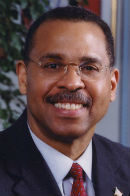Candidate Donald Trump had many Republican critics. Some voted for him only out of concern for judges. With the nomination of Brett Kavanaugh to the Supreme Court, he repaid their confidence in full.
If you listen to Democrats, you would believe that only one issue comes before the Supreme Court: abortion. And that Roe v. Wadedeserves to be enshrined in the legal hall of fame.
In fact, at the time many honest liberals admitted that the majority opinion read like a legislative proposal. And the high court since has substantially modified Roe, limiting its impact.
The opinion’s greatest flaw was to ignore the imperative to protect life just months away from birth. For some, deciding the right balance between life and liberty will never be easy. Which is why the Founders left that question, like so many others, to legislators – the peoples’ representatives.
The basic question for those nominated to the Supreme Court is: Do they believe that the Constitution means what it says? Not every legal question is easy to answer. But judges are supposed to decide what the law is, not what they believe the law should be.
Brett Kavanaugh appears to be that sort of jurist. Republicans are not planning to vote for him because he will write their views into the Constitution. They are supporting him because he will respect the views upon which the Constitution is based.
If you don’t like what the Constitution says, you should amend it. You should not ask judges to do it for you. The Supreme Court is not a continuing constitutional convention, empowered to amend the nation’s fundamental law whenever the national zeitgeist changes.
Much of the Court’s most important work is stepping back. Refusing to interfere with the work of other institutions. Sometimes that is the president, when, for instance, he bars entry of visitors from countries hostile to America. Or it is Congress, setting qualifications for welfare programs, such as food stamps.
Frequently it is states. In America states are sovereign and have responsibility for most practical problems. Even as the national government has expanded its reach, states—alongside cities, counties, and localities—remain the first responders to social problems.
This does not mean Washington can never intervene. But it needs constitutional warrant, as well as good cause, to do so.
For years the Left used its control of the federal courts to assume powers rightly left to the states. The national government took over issues, such as welfare, once the exclusive province of the states. More disturbingly, the national courts increasingly interfered with state law-making.
Of course, governors and legislatures sometimes do wrong. But, in most cases the federal system leaves them with principal responsibility for their citizens. States are meant to be laboratories of experimentation, responsive to citizens and willing to consider new solutions to common problems.
One of the most important areas where judges have meddled is election law. States are subject to congressional override, but only in terms of the “times, places and manner of holding elections” for federal offices, Senators and Representatives. Otherwise, they determine the election process.
While constitutional guarantees, such as equal protection, apply, they do not provide an excuse for federal judges to rewrite state election laws. Yet jurists routinely block measures to ensure the states’ ability to protect the integrity of their electoral processes, such as requiring identification to vote.
Judges also are trying to control the redistricting process and make legislative boundaries “fairer,” which usually means electing more Democrats. In fact, former President Barack Obama is appearing in ads backing Democratic plans to seize control of the process.
In Gill v. Whitford last term, Democrats challenged the new Wisconsin legislative maps. The American Civil Rights Union urged the high court to reject the challenge, citing the “Court’s recent reaffirmance of the original constitutional arrangement which gave states the general power to manage their elections subject to explicit and well-defined exceptions.” The justices maintained the status quo by ruling that the plaintiffs had no “standing” to bring the case, but similar lawsuits are sure to be filed in the future.
No one knows how Judge Kavanaugh would rule in any of these situations. However, his philosophy suggests that he would respect traditional constitutional boundaries. In particular he would not act as a super-legislator to determine state legislative districts across the country.
Supreme Court justices matter. Which is why the president’s nomination of Judge Kavanaugh deserves public support. We can’t predict how he would vote, but we can predict how he would think. Which is what makes him eminently qualified to sit on the high court.
 Ken Blackwell is a Senior Fellow for Human Rights and Constitutional Governance at the Family Research Council in Washington, D.C.
Ken Blackwell is a Senior Fellow for Human Rights and Constitutional Governance at the Family Research Council in Washington, D.C.
The views expressed in opinion articles are solely those of the author and are not necessarily either shared or endorsed by Black Community News.
 CURE News and Clergy Blog News and Commentary for Christians
CURE News and Clergy Blog News and Commentary for Christians




I agree. Excellent analysis, as usual. People complaining about Kavanaugh’s previous statements about Roe v. Wade don’t seem to realize that, as a lower-court judge, he had no authority to treat it as anything other than “settled law.” That in itself shows that he doesn’t believe in legislating from the bench.
Even on the Supreme Court, justices can only rule on the cases that are presented to them. So it’s up to us pro-lifers to present a case that can overturn Roe – and the more justices on the Court who believe that “judges are supposed to decide what the law is, not what they believe the law should be,” the better chance we will have.